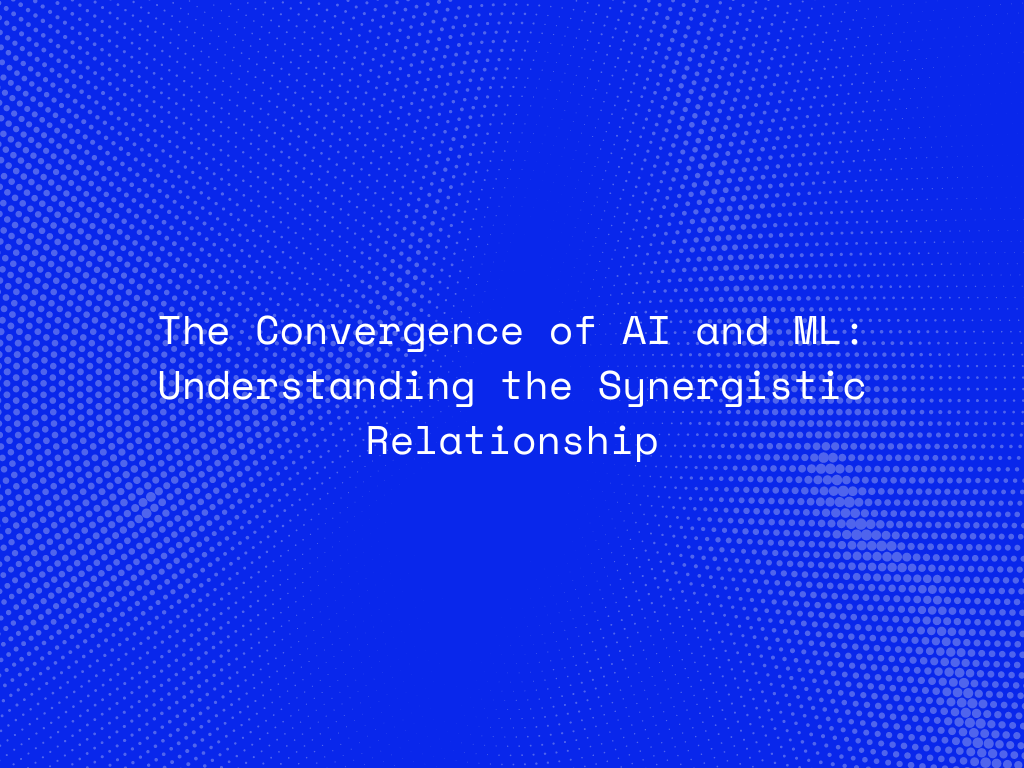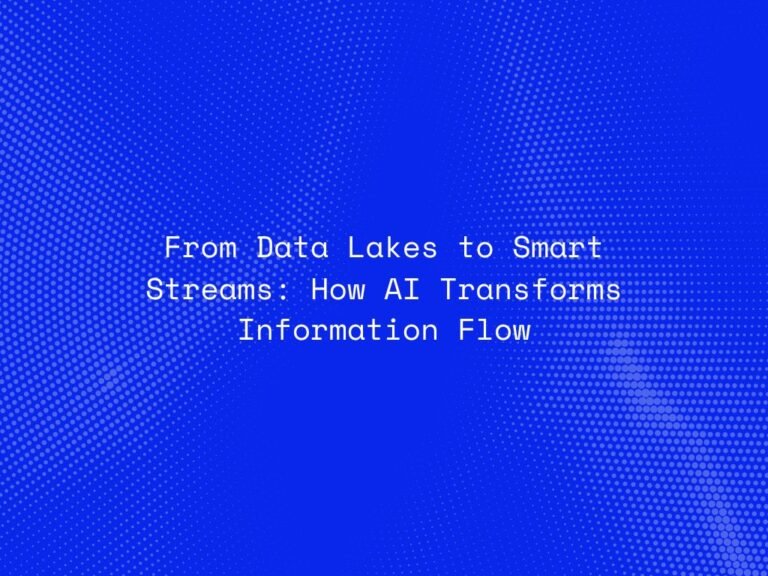Artificial Intelligence (AI) and Machine Learning (ML) are often used interchangeably, but they represent distinct yet interconnected fields. AI encompasses the broader concept of machines being able to carry out tasks in a way that we would consider “smart.” ML, a subset of AI, refers to the algorithms and statistical models that enable computers to perform tasks without explicit instructions, instead relying on patterns and inference. This blog explores the synergistic relationship between AI and ML, highlighting how their convergence is driving innovation and transforming various industries.
What is Artificial Intelligence (AI)?
AI refers to the simulation of human intelligence in machines that are programmed to think and learn like humans. It involves a wide range of technologies, including natural language processing (NLP), computer vision, robotics, and expert systems. AI can be categorized into two types: narrow AI, designed for specific tasks, and general AI, which can perform any intellectual task that a human can do.
What is Machine Learning (ML)?
ML is a subset of AI that focuses on the development of algorithms that allow computers to learn from and make decisions based on data. Unlike traditional programming, where rules and logic are explicitly defined, ML systems improve their performance by identifying patterns and relationships within the data. Key techniques in ML include supervised learning, unsupervised learning, and reinforcement learning.
Connect With Us
The Synergistic Relationship Between AI and ML
Enhanced Decision-Making
AI systems leverage ML algorithms to process large volumes of data, identify patterns, and make data-driven decisions. This synergy enhances the decision-making capabilities of AI applications, making them more accurate and efficient.
Continuous Improvement
ML enables AI systems to learn and improve over time. By continuously analyzing new data, AI systems can adapt to changing environments and refine their performance, leading to more robust and reliable solutions.
Automation and Efficiency
The integration of AI and ML automates complex processes, reducing the need for human intervention. This automation leads to increased efficiency, allowing businesses to focus on strategic initiatives and innovation.
Personalized Experiences
AI and ML work together to provide personalized experiences by analyzing user data and behavior. This synergy powers recommendation engines, personalized marketing campaigns, and adaptive learning systems, enhancing user engagement and satisfaction.
Innovation and New Applications
The convergence of AI and ML drives innovation across various industries. From healthcare and finance to retail and transportation, the combined capabilities of AI and ML enable the development of new applications and solutions that were previously unimaginable.
Key Applications of AI and ML Convergence
Healthcare
AI and ML are transforming healthcare by enabling predictive analytics, personalized medicine, and advanced diagnostics. ML algorithms analyze patient data to predict disease outbreaks, optimize treatment plans, and improve patient outcomes.
Finance
In finance, AI and ML enhance fraud detection, risk management, and algorithmic trading. By analyzing transaction data and market trends, ML models help financial institutions make informed decisions and reduce financial risks.
Retail
AI-powered recommendation systems and personalized marketing campaigns in the retail sector are driven by ML algorithms. These technologies analyze customer preferences and behaviors to deliver targeted content and improve the shopping experience.
Transportation
The synergy between AI and ML powers autonomous vehicles, traffic management systems, and logistics optimization. ML algorithms analyze sensor data and traffic patterns to enhance the safety and efficiency of transportation systems.
Manufacturing
AI and ML improve manufacturing processes through predictive maintenance, quality control, and supply chain optimization. By analyzing sensor data and production metrics, ML models help manufacturers reduce downtime and enhance productivity.
Connect With Us
Challenges in AI and ML Integration
Data Quality and Quantity
The effectiveness of ML algorithms depends on the quality and quantity of data. Ensuring access to large, diverse, and high-quality datasets is crucial for developing accurate and reliable AI systems.
Ethical Considerations
The use of AI and ML raises ethical concerns related to privacy, bias, and accountability. Developing fair and transparent AI systems that respect user privacy and mitigate biases is essential for gaining public trust.
Technical Complexity
Integrating AI and ML involves complex technical challenges, including algorithm development, data preprocessing, and model deployment. Overcoming these challenges requires expertise in both AI and ML technologies.
Scalability
Scaling AI and ML solutions to handle large volumes of data and users can be challenging. Ensuring that AI systems remain efficient and responsive at scale is critical for their success.
The Future of AI and ML Convergence
Advancements in Algorithms
Ongoing research in AI and ML will lead to the development of more sophisticated algorithms capable of handling complex tasks and providing more accurate predictions.
Integration with Emerging Technologies
AI and ML will increasingly integrate with other emerging technologies, such as the Internet of Things (IoT), blockchain, and 5G. These integrations will create new synergies and enhance the capabilities of AI applications.
Ethical AI Development
There will be a greater focus on ethical AI development, with increased efforts to ensure fairness, transparency, and accountability in AI systems. Collaboration between policymakers, industry leaders, and researchers will be essential.
AI for Social Good
AI and ML will play a crucial role in addressing global challenges, such as climate change, healthcare accessibility, and disaster response. These technologies will demonstrate their potential for social good and positive impact on society.
Connect With Us
Conclusion
The convergence of AI and ML is driving significant advancements and transforming various industries. By enhancing decision-making, improving efficiency, and enabling personalized experiences, the synergistic relationship between AI and ML unlocks new possibilities and innovations. As these technologies continue to evolve, addressing ethical considerations and technical challenges will be crucial for realizing their full potential. Embracing the convergence of AI and ML will pave the way for a future where intelligent systems drive positive change and create new opportunities.
What are your thoughts on the convergence of AI and ML? Share your comments and join the conversation below!




